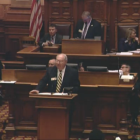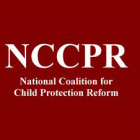
NRA pushed ‘stand your ground’ laws across the nation
|
Gun-rights group used endorsements, campaign cash and political pressure to expand concept of self-defense
This story originally appeared on iWatchnews.org by The Center for Public Integrity
In 2004, the National Rifle Association honored Republican Florida state legislator Dennis Baxley with a plum endorsement: Its Defender of Freedom award. The following year, Baxley, a state representative, worked closely with the NRA to push through Florida’s unprecedented “stand your ground” law, which allows citizens to use deadly force if they “reasonably believe” their safety is threatened in a public setting, like a park or a street. People would no longer be restrained by a “duty to retreat” from a threat while out in public, and would be free from prosecution or civil liability if they acted in self-defense. Florida’s law is now under a cloud as a result of the controversial February shooting of Trayvon Martin, 17, in Sanford, Fla. The 28-year-old shooter, George Zimmerman, who was licensed to carry a gun — and once had a brush with police — claims he acted in self-defense after a confrontation with Martin, and some legal experts say Florida’s law could protect Zimmerman, who has not been charged.







